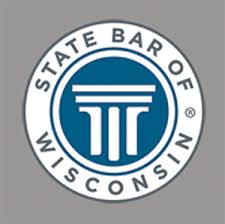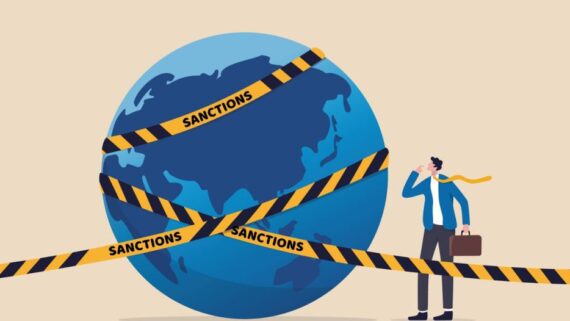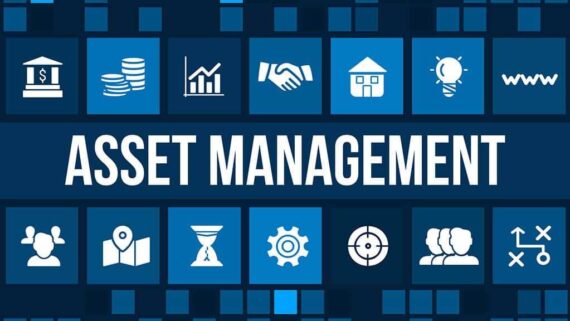In an increasingly interconnected world driven by technological innovation, the protection of intellectual property rights and the prevention of technology theft have become paramount concerns for businesses across industries. Economic espionage is not new. What is new is the way IP is stolen. Cyber attacks are the most used method that other nations, companies, and criminals employ to root out and steal your IP and other valuable or sensitive information. In Turkey, where a burgeoning technology sector coexists with a rapidly evolving legal landscape, the safeguarding of technology secrets from unauthorized access or misappropriation is a pressing issue for companies seeking to maintain their competitive edge in the global market. Through a detailed examination of relevant statutes, case studies, and practical considerations, this article aims to provide clarity and guidance to companies operating in Turkey’s business environment.
Stealing Technology Secrets from Companies in Turkey
“Technology secrets” typically refer to proprietary knowledge, information, or techniques that a company or individual keeps confidential to maintain a competitive advantage in technology-related fields. These secrets can include various aspects such as manufacturing processes, software algorithms, product designs, formulas, research data, or any other information that provides a technological edge over competitors.
The concept of technological secrets is closely related to intellectual property rights, particularly trade secrets. Unlike patents, which require public disclosure in exchange for protection, trade secrets rely on confidentiality. Companies protect their technological secrets through non-disclosure agreements (NDAs), restricted access, and other security measures to prevent unauthorized access or disclosure.
Maintaining technological secrets can be crucial for businesses in highly competitive industries like technology, pharmaceuticals, aerospace, and manufacturing. These secrets often represent significant investments in research and development and can be critical to a company’s success and market position.
Definition
In legal and academic contexts, the term “technological secrets” may not have a universally agreed-upon definition. Instead, it is often used interchangeably with related terms such as “trade secrets,” “industrial secrets,” or “confidential information.” However, there are common themes and principles associated with technological secrets in both literature and case law.
- Trade Secrets Definition: One commonly cited definition of trade secrets is provided by the Uniform Trade Secrets Act (UTSA) in the United States. According to the UTSA, a trade secret is information that derives independent economic value from not being generally known to or readily ascertainable by others who can obtain economic value from its disclosure or use, and is the subject of reasonable efforts to maintain its secrecy.
- Confidential Information: Many legal systems recognize the broader category of “confidential information,” which encompasses trade secrets but may also include other types of sensitive information. Confidential information is typically defined as information that is disclosed in circumstances imposing an obligation of confidence, and its unauthorized use or disclosure could cause harm to the owner.
- Industrial Secrets: In some jurisdictions, particularly in Europe, the term “industrial secrets” may be used to refer to confidential information related specifically to industrial or technological processes, inventions, or know-how. Industrial secrets often overlap with trade secrets but may have a narrower focus on manufacturing or industrial applications.
Case law often provides context-specific interpretations of the term “technological secrets” within the framework of trade secret law. Courts may analyze factors such as the nature of the information, its value to competitors, efforts to maintain secrecy, and the presence of confidentiality agreements when determining whether information qualifies as a technological secret.
While there may not be a single, universally accepted definition of “technological secrets” in the literature or case law, the concept aligns closely with established principles of trade secret protection and confidentiality. It refers to proprietary technological knowledge or information that is kept confidential to maintain a competitive advantage in the marketplace.
Stealing Technology Secrets
The act of “stealing technology secrets from companies” is a serious issue that can have significant legal, financial, and ethical implications. Research on this phenomenon typically falls within the broader field of intellectual property (IP) law, corporate espionage, cybersecurity, and business ethics.
Stealing technology secrets often involves the misappropriation of intellectual property, which includes patents, trade secrets, copyrights, and trademarks. This can occur through various means such as corporate espionage, hacking, insider threats, or unauthorized access to proprietary information.
Companies may pursue legal action against individuals or entities found to have stolen their technology secrets, seeking remedies such as injunctions, damages, or criminal prosecution.
Corporate espionage refers to the clandestine gathering of confidential information or trade secrets for competitive advantage. This can involve tactics such as bribery, surveillance, social engineering, or infiltrating rival companies to obtain proprietary technology or business strategies.
With the increasing digitization of business operations, cybersecurity has become a critical concern for protecting technology secrets. Cyberattacks, data breaches, and insider threats pose significant risks to companies’ intellectual property and sensitive information.
Ethical considerations surrounding the theft of technology secrets extend beyond legal compliance. Companies are expected to uphold ethical standards in their business practices, including respecting the intellectual property rights of others and maintaining the confidentiality of proprietary information.
High-profile incidents
There have been several high-profile incidents involving the theft of technology secrets from companies. Here are a few notable examples:
- Waymo vs. Uber: In 2017, Waymo, the self-driving car division of Alphabet Inc. (Google’s parent company), filed a lawsuit against Uber alleging theft of trade secrets related to autonomous vehicle technology. Waymo accused a former employee, A. L., of stealing confidential files before leaving to start his own self-driving truck company, which was later acquired by Uber. The case was settled in 2018, with Uber agreeing to pay Waymo $245 million in equity.
- Huawei vs. T-Mobile: Huawei, a Chinese telecommunications company, was accused of stealing trade secrets from T-Mobile USA related to smartphone testing technology. According to the U.S. Department of Justice, Huawei employees improperly photographed and stole parts of a T-Mobile robot used for testing smartphones. In 2019, Huawei was indicted on charges of trade secret theft, wire fraud, and obstruction of justice.
- Apple vs. Samsung: The legal battles between Apple and Samsung over smartphone patents have involved allegations of technology secrets theft. In a highly publicized case, Apple accused Samsung of copying the design and features of its iPhone and iPad devices. The lawsuits, filed in multiple countries starting in 2011, resulted in judgments and settlements totaling billions of dollars. While the focus was primarily on patent infringement, allegations of stealing design and technology secrets were also raised.
- SolarCity vs. SunPower: SolarCity, a solar energy company, filed a lawsuit against SunPower Corporation in 2014 alleging theft of trade secrets related to solar panel technology. SolarCity claimed that several former employees who joined SunPower had taken confidential information and proprietary technology with them. The case was settled in 2016, with SunPower agreeing to pay SolarCity $29.5 million.
These are just a few examples of high-profile incidents involving the theft of technology secrets from companies. Such cases underscore the importance of protecting intellectual property and the potential legal and financial consequences for both the perpetrators and the affected companies.
Technology disputes
Technology disputes come in a variety of shapes and sizes, frequently arising in relation to service delivery and outsourcing contracts, intellectual property (IP) rights, data protection, software licensing, competition law, consumer protection and, more recently, cybersecurity and digital assets.
Claims for compensation in relation to data protection breaches and the misuse of private information are common in Turkey, with individuals seeking to exercise their rights under the Türkiye data protection regime.
However, the emergence of new technologies means that the Turkish courts are facing an increasingly diverse and complex set of technical issues, with the landscape evolving particularly quickly in relation to artificial intelligence (AI), blockchain technology and digital assets.
Technology-related disputes can arise in various contexts, encompassing a wide range of issues related to intellectual property, contracts, regulatory compliance, cybersecurity, and more. Some of the most common types of technology-related disputes include:
- Intellectual Property Infringement: Disputes over intellectual property rights, including patents, copyrights, trademarks, and trade secrets, are prevalent in the technology sector. These disputes may involve allegations of infringement, misappropriation, or unauthorized use of intellectual property.
- Contractual Disputes: Contracts are fundamental in technology transactions, including software development agreements, licensing agreements, and technology transfer agreements. Disputes may arise over contract interpretation, performance, breach of contract, or failure to deliver goods or services as agreed.
- Data Privacy and Security: With the increasing volume of data collected and stored by technology companies, disputes related to data privacy and security breaches are common. These disputes may involve allegations of unauthorized access, data breaches, non-compliance with privacy regulations, or failure to protect sensitive information.
- Cybersecurity Incidents: Cybersecurity incidents such as hacking, malware attacks, ransomware, and data breaches can lead to disputes between affected parties, including businesses, customers, and third-party service providers. Disputes may arise over liability for damages, responsibility for remediation, or contractual obligations related to cybersecurity measures.
- Regulatory Compliance: Technology companies must comply with various laws and regulations, including those related to consumer protection, data privacy, cybersecurity, and industry-specific regulations. Disputes may arise when companies are accused of regulatory violations or fail to meet compliance requirements.
- Antitrust and Competition Law: Technology companies may face disputes related to antitrust and competition law, particularly concerning allegations of anti-competitive behavior, monopolistic practices, or unfair competition. These disputes may involve regulatory investigations, civil lawsuits, or enforcement actions by competition authorities.
- Domain Name Disputes: Disputes over domain names, including cybersquatting, trademark infringement, or disputes between parties claiming rights to a particular domain name, are common in the digital space.
- Employment Disputes: Technology companies may face disputes with current or former employees over issues such as intellectual property ownership, non-compete agreements, confidentiality obligations, or wrongful termination.
These are just a few examples of the most common types of technology-related disputes. The complexity and evolving nature of technology create a broad spectrum of potential legal issues that companies and individuals in the technology sector may encounter. As such, it’s essential for technology companies to be proactive in managing legal risks and seeking legal advice when necessary.
Economic, Industrial and Commercial offenses
Confidentiality of technological and trade secrets, which bear commercial value and provide a competitive advantage, is almost crucial for companies to survive. In this regard, Turkish legal system embodies a special protection for technological and trade secrets and regulates the disclosure of technological and trade secrets as a criminal offense under the section titled as economic, industrial and commercial offenses of the Turkish Penal Code No. 5237 (TPC).
According to article 239/(3) of the TPC, if such secrets are disclosed to a foreigner not resident in Türkiye or its officers, the sanction shall be increased by one thirds, and no complaint shall be sought. On the other hand, according to article 242 of the TPC, legal entities making benefit unjustly by committing this crime shall be subject to security precautions specific to legal entities.
It must be noted that, given the significance of trade secrets to sustain the competitive market conditions, trade secrets have been subject to another special protection in scope unfair competition provisions under article 54 and ff. of Turkish Commercial Code(TCC).
In light of these provisions, if companies encounter an incident of disclosure of trade secrets or become exposed to such a risk, they may seek legal remedies under the unfair competition provisions of the TCC by requesting the determination and cessation of unfair competition, in addition to initiating civil actions to request material and/or moral compensation if the conditions have occurred. These mechanisms can be supported with criminal complaints based on the unfair competition offence under the TCC, disclosure of trade secrets offence under the TPC, and even abuse of trust offence under article 155 of the TPC, if it fits the specifics of the case. However, in practice, public prosecutors may sometimes perceive these kinds of disputes as commercial disputes and render non-prosecution decisions. Therefore, it is recommended to collect evidence diligently, have technical inspection on devices where the offence is committed by way of electronic means, and the complaint petition is substantiated by solid proof.
 English
English Türkçe
Türkçe Français
Français Deutsch
Deutsch










Comments
No comments yet.